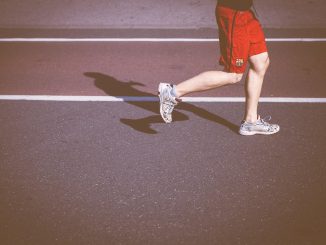
Holistic medicine focuses not only on treating symptoms but on healing your entire being, mind, body and spirit. As such, taking a holistic approach to addiction recovery can address both the physical symptoms of withdrawal, as well as the underlying attitudes and beliefs that fueled the addiction in the first place.
All those in recovery can take advantage of holistic medicine to potentially feel better than ever before and avoid falling back into the addiction trap. The following six holistic practices can benefit anyone, and especially those who have made the courageous decision to get clean.
1. Art Therapy
Art therapy harnesses the power of imagination and creativity to help patients overcome anxiety, depression and other mental health woes. As many in recovery struggle with panic attacks and feelings of despair, art therapy offers a natural, drug-free way to work through these difficult emotional reactions.
Art therapy also helps those in recovery connect with the traumatic events that led to their slide into addiction so the individual can process this trauma and recover from it instead of repressing the trauma with alcohol and/or drugs.
Art therapy involves much more than whipping out a pad of paper and some crayons or colored pencils. The choice of art materials matters, as certain materials lend themselves more to expressing certain emotions. Those wishing to explore art therapy should carefully select an art therapist skilled in treating addictive behavior.
2. Rub Out Toxins
Who doesn’t love a good massage? Massage therapy greatly benefits both the mind and the body.
It can help people in recovery reconnect with what good touch feels like, so those whose underlying trauma involved physical or sexual abuse derive an extra benefit.
Many chronic pain patients develop addictive behaviors in an attempt to escape, at least temporarily, from the constant agony they feel.
Massage therapy helps manage pain naturally without the use of medication. Also, massage therapy can rid the body of toxins trapped in muscle tissue.
3. Move It
Exercise releases endorphins, chemicals in the body that produce a sense of euphoria.
Many have heard of the “runner’s high” people experience after a good, intense workout.
This natural high aids in the recovery process as you replace an unhealthy activity such as getting drunk with a positive one.
4. Feed Your Soul
Researchers have discovered that the foods you eat influence your mood, with over-consumption of the wrong foods leading to feelings of anxiety and depression that prompt some in recovery to relapse. Food therapy involves bringing the body’s biochemicals back into balance by eating the right foods.
Addiction causes many sufferers to develop malnutrition, as those suffering from addiction often neglect to eat so they get a “rush” more quickly or from subsiding on junk foods. Nutritional therapy restores vitamins — especially vitamin B3 — to the body, as well as replenishing omega-3 oils critical to brain health and recovery.
5. Build a Support System
As holistic medicine treats the mind and soul in addition to the body, developing a solid, trustworthy support system benefits many in recovery.
 Everyone needs to feel loved and accepted, and building new connections between mental health professionals and fellow recovering addicts lifts spirits and helps prevent relapse.
Everyone needs to feel loved and accepted, and building new connections between mental health professionals and fellow recovering addicts lifts spirits and helps prevent relapse.
Many addicts sadly develop a social circle based around fellow users.
Mental health professionals working with recovering addicts can suggest activities in which patients can build a new support system made up of individuals with healthy habits.
Loneliness can cause a relapse, so creating a solid support network reduces relapses.
6. Practice Yoga and Meditation
Finally, those in the recovery process benefit from starting a regular meditation practice, either combined with yoga or on its  own.
own.
Gentle yoga stretches alleviate physical pain that can make meditation difficult, so including a few yoga poses helps those with pain issues relax and focus.
Meditation takes various forms. Some therapists integrate guided meditations into their practices to help patients learn how to quiet their minds.
But all anyone needs to start a meditation practice is a quiet, comfortable place to sit and reflect on one’s thoughts.
Recovering addicts face a long journey back to health, but integrating holistic practices can both help accelerate the healing process and also prevent relapses. Addiction affects those afflicted mentally, physically and emotionally, and holistic medicine focuses on healing the whole person, not just the body. Make your recovery process easier on yourself by incorporating holistic elements into your self-care program.





